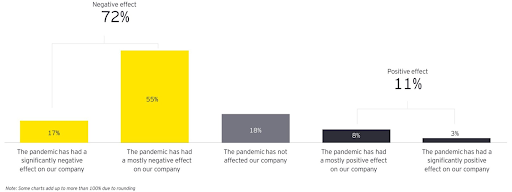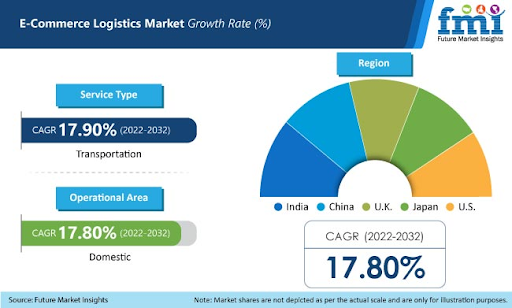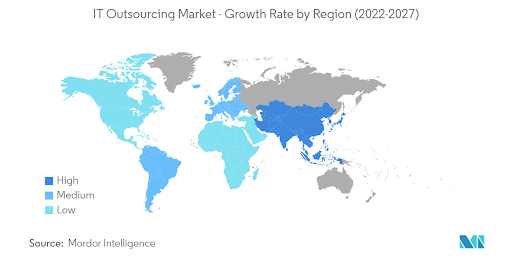No doubt developing an on-demand logistics app comes with a price tag. It falls somewhere between the price of $25,000 to $200,000. However, this range can vary depending on various factors like the location of the mobile app development partner, technologies used for development, etc. In short, it depends on your requirements.
However, I would like to ask you a question. Do you think knowing the cost range of your project is enough to get started?
If yes, all the good wishes for your venture. However, those who are curious about figuring out how we arrive at this price tag. Or, want to know:
- What are the factors that impact the cost of on-demand logistics app development?
- What features should it have?
- What is the technology you need to rely on for the development?
- Whom should you partner with?
- How can you minimize the cost of it?
You can definitely sit back, relax and read this blog to the end. Here, I’ve tried to answer all these questions apart from breaking down the on-demand logistics app development cost. This is to just help you have a successful journey in your on-demand logistics mobile app development venture.
First, let’s gain a little perspective on the current condition of the logistics market. Why? Well, that’s because, with these statistics, you will have a clear idea of how beneficial It is going to be for you if you get your hands on developing an on-demand logistics app.
Logistics Market Overview 2023:
Well, readers, it’s no secret that the pandemic time has thrown us in pain in many health as well as economic activities, including logistics. Many key industry players had a hit-and-miss situation during this period.
According to an EY survey, 72% of companies reported negative effects from the pandemic on their supply chains

To tackle this situation, companies show their interest in digital solutions. Thus, we can see the result in the increased market value of digital logistics solutions.
A report by Strategic Market Research indicates that the global digital logistics market size was $18.10 billion in 2021 and is projected to grow 17.54 % by 2030 to $77.52 billion.
Furthermore, the global logistics industry recovered from the COVID-19 pandemic in 2021 with a market size of approximately 8.43 trillion Euros. In 2027, the logistics industry’s scale is projected to exceed 13.7 trillion Euros as per Statista.
Wait, there’s more!
Surprisingly, the logistics industry is experiencing growth due to the increasing popularity of door-to-door services and the emergence of eCommerce startups.
- Talking about the statistics, the market size of eCommerce logistics on a global scale stood at $439.8 Million in 2021 and is set to expand significantly, boasting a compound annual growth rate of 17.8%.
- The projected growth will propel the market to reach US$ 2,734.6 Billion in 2032 from US$ 531.6 Billion in 2022.

These numbers show just how important is for the transport and logistics industry to invest in digital solutions. And not only to invest but to implement them in the best way.
There is something for everyone, whether you going for an on-demand logistics app or just choosing to develop a full-fledged supply chain management system, digital solutions will help you gain a competitive edge.
But how to do that?
It’s simple, hire tech experts. Yes, you heard it right. You can reach out to a top-notch software development company and have a discussion with them regarding how with the help of technology you can improve your transportation or logistics business. They will guide you with the best tech solutions that can bring about a change in the way you work.
Now getting back to the topic,
What is the cost of developing an on-demand logistics app?
As previously I stated, the development cost of an on-demand logistics mobile application can cost you for range from $25,000 to $200,000. But keep in mind the final price can be influenced by several factors, including the development process you may opt for.
If you opt for complex development processing, the cost will be much higher. While if you choose to go with a simple and basic development process, the cost will be less.
- A basic on-demand app could cost between $25,000 and $110,000.
- A moderately complex on-demand app would cost between $110,000 and $200,000.
- A completely complex on-demand app could range from $200,000 and beyond.
Note-Whatever figure you see here is a rough estimate. After analyzing various such projects and talking to experts, the figure is shared with you. The final price of your on-demand logistics app development project can only be known after contacting your app development partner.
In addition to the numerical breakdown, let’s delve into the factors that contribute to the final cost of developing a logistics mobile app.
[Read Also-Cost of Developing a Car Parking App]
Factors That Affect the On-Demand Logistics App Development Costs
When considering an on-demand logistics app project, a variety of elements will influence the total cost. Being aware of these can assist you in both forming an accurate budget and making informed decisions regarding your strategy. Some of the essential cost-altering elements include
- App Features
The features included in an on-demand logistics app can have a significant impact on the overall cost of development. If your need for an app is to integrate complex features, such as
- Real-time tracking,
- Automatic scheduling
- Route optimization,
- Inventory management
- Automatic bill generation, etc
Then, it’s obvious that you will require highly experienced mobile app developers who are skilled enough to integrate the advanced functionality you require into your app. Not just that, for your complex features, you may require more development time, testing, and maintenance, which can increase costs over time.
Meaning, the complexity of the app can impact development costs. A simple on-demand logistics app with basic features will be less expensive to develop than a more complex app with advanced functionality.
Therefore, as a business person, you should carefully consider which features are essential for your app and prioritize them accordingly to keep costs under control. Moreover, if you want to get a logistics app developed, you will need an experienced logistics mobile app development company.
- Development Team Involved:
When developing an on-demand logistics app, the total expense of the project will vary depending on the size and variety of personnel that is involved. Generally speaking, an increased team size leads to increased expenditure.
Commonly, an on-demand logistics app development team will include professionals such as:
- Project managers,
- Product owners,
- UI/UX designers,
- Developers,
- Quality assurance engineers,
- And database administrators.
Depending on the size and complexity of the app, additional specialists such as data analysts and machine learning experts may be required.
The hourly rates for these professionals will vary depending on their level of experience and expertise. For example, senior logistics mobile app development developers will typically command a higher hourly rate than junior logistics mobile app development developers. As such, the cost of development will be heavily influenced by the number and level of expertise of the team members involved.
- Development Team Location
The location of the development team can also impact the cost of on-demand logistics app development. This can easily be seen with hiring mobile app developers from a high-cost region, such as the USA, UK, or Western Europe. In these regions, the cost of hiring developers is more expensive than hiring one in a lower-cost region, such as India.
| Regions | Average Hourly Rates |
| North America
Canada, United States |
$35- $65 |
| Eastern Europe
Poland, Ukraine, Romania, Bulgaria, Hungary |
$20 – $50 |
| Western Europe
Netherlands, Germany, Switzerland, Austria, Belgium |
$25 – $55 |
| Latin America
Columbia, Mexico, Brazil, Argentina |
$20-$50 |
| Africa
Kenya, South Africa, Nigeria, Morocco, Egypt |
$20 -$40 |
| Asia
India, China, Philippines |
$15- $40 |
Apart from this, the IT outsourcing market has witnessed intense competition in the Asia-Pacific region, with India and China dominating the need for a long time. However, Malaysia has been steadily emerging as a lucrative market destination and is considered an emerging challenger across Southeast Asia.

Companies should consider the trade-offs between cost and quality when choosing a development team.
- App Platform:
Developing an on-demand logistics app for either Android or iOS requires an investment of resources; however, building for the iOS platform necessitates more complex instruments, thereby driving the cost up compared to its Android counterpart.
Furthermore, a logistics app development company can save you time and money by developing a logistics app. It’s important to choose the right provider for your needs.
- UI/UX Design:
The visual aspect of an app plays an important role in its success, and the cost of design varies according to its requirements. Utilizing templates or pre-existing designs is generally more cost-effective than opting for an eye-catching, personalized look.
- Third-Party Integrations:
If you want to integrate your app with third-party APIs or services, this will also impact the cost of an on-demand logistics solution. The number and type of third-party integrations required such as payment gateways or shipping providers will determine the additional cost.
- Technology stack
The technology stack used for on-demand logistics app development also plays an important role in determining the cost. Advanced technology stacks like NodeJS, React Native, Firebase, and MongoDB come with a significant price tag compared to simpler stacks like HTML5, CSS3, and PHP.
- Maintenance:
After the on-demand logistics app is developed by a Logistics App Development Company, ongoing maintenance, and support can be provided to keep the app running smoothly.
Moreover, the cost of maintenance and support can vary depending on the complexity of the app and the level of service required. Companies should budget for ongoing maintenance and support to ensure that their app continues to meet the needs of their customers.
Simplified breakdown of on-demand logistics app development costs
| Factor | Impact on Cost |
| App Features | More complex features require more development time and testing, increasing costs |
| Development Team Involved | Larger teams with more experienced professionals command higher hourly rates and increase the overall cost |
| Development Team Location | Hiring developers from high-cost regions increases development costs, while lower-cost regions can offer cost savings |
| App Platform | Developing for iOS typically requires more complex instruments, driving the cost up compared to Android development |
| UI/UX Design | Utilizing templates or pre-existing designs is generally more cost-effective than opting for personalized designs |
| Third-Party Integrations | Integrating with third-party APIs or services increases development costs, with the number and type of integrations impacting the overall cost |
| Technology Stack | Advanced technology stacks come with a significant price tag compared to simpler stacks |
| Maintenance | Ongoing maintenance and support can vary in cost depending on the complexity of the app and the level of service required. |
Different Types of On-demand Logistics Apps
Folks put your thinking caps on and let the brainstorming begin! If you’re searching for an impressive logistics app, partner with a renowned logistics app development company to make your vision a reality.
Innovative tracking systems and effortless communication features are aplenty – adding these features to your tailored app is a must. Moreover, you can explore different on-demand logistics solutions for inspirational concepts to design your bespoke app.
- Fleet management apps: Companies maintain a detailed record of their cars, operators, and consignments. Through real-time tracking, businesses can effortlessly follow their possessions from anywhere. Further, fleet management applications usually contain components such as optimized routing, fuel administration, and periodic upkeep.
- Warehouse mobile apps: Warehouse management systems are developed to simplify inventory maintenance. Their functionality includes barcode scanning, inventory level tracking in real-time, and order coordination.
- Tracking and forwarding apps: Businesses rely on tracking and forwarding applications to keep tabs on their goods as they transit through the supply chain. These apps ensure transparency and up-to-date insights with real-time visibility, alongside added features like order administration, notification services, and e-signature capabilities.
- Last-Mile Delivery Apps: Through these apps, companies are able to deliver goods right to their customer’s doorsteps. Furthermore, businesses can delegate delivery assignments to drivers, keep an eye on shipments in real time, and send notifications to customers.
- Freight Marketplace Apps: Such apps join together companies and freight carriers, enabling them to effortlessly book, keep track of, and oversee their shipments.
To obtain further inspiration for your on-demand logistics app, familiarizing yourself with well-known players who have succeeded in acquiring a substantial portion of the market share within the supply chain and logistics field is essential. These names include DHL, FedEx, Uber Freight, and Amazon Logistics.
How iWebServices Can Assist in On-Demand Logistics App?
So why choose iWebServices? With extensive knowledge in building logistics applications, we comprehend the specific problems experienced by on-demand logistics operations. We are eager to join forces with you in recognizing your problem areas and establishing a tailored response to resolve them.
Furthermore, at iWebServices our aim is to optimize your business. With that, I mean allowing you to work to its highest potential while also providing a first-rate experience for your users throughout the whole process.
So if you’re ready to take your on-demand logistics game to the next level, give iWebServices- a leading mobile app development company call. We’ll help you serve up some serious supply chain success with a side of wit and charm. Game on!
 April 12, 2023
April 12, 2023







